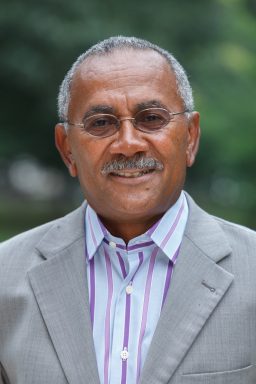Reed Named Senior Vice President for Inclusion and Diversity at Bowdoin College
By Bowdoin
Michael E. Reed of Carlisle, PA, has been named senior vice president for inclusion and diversity at Bowdoin College, effective March 1, 2018.
Working closely with Bowdoin President Clayton Rose, Reed will be responsible for building on efforts already underway at the College to produce an even more inclusive campus community while promoting greater diversity among students, faculty, and staff by race, ethnicity, religion, economic background, first-generation college student status, gender, sexuality, disability, and differing political perspectives, among other measures. He will report to Rose and will serve as a member of the College’s senior staff.
“Michael’s impressive record of accomplishment in shaping institutional change, combined with his leadership and strategic planning expertise in both higher education and the private sector, make him the ideal person to take our inclusion and diversity efforts to a new level at Bowdoin,” said Rose. “He knows the liberal arts, and he knows how to work with and guide others to adapt and to navigate cultural changes at both the interpersonal and organizational level. He was a standout in our search to fill this new position, and the unanimous and enthusiastic choice of our search committee. I look forward to welcoming Michael and his partner, Allison Thorner, to Bowdoin and to collaborating with him to deepen our existing commitment to inclusion and diversity at the College.”
From 2006 to 2014, Reed served as vice president and a member of the senior leadership team at Williams College, his alma mater. He established Williams’s Office for Strategic Planning and Institutional Diversity and helped implement a plan for expanding institutional inclusion and diversity, working with stakeholder groups including students, faculty, staff, alumni, and the board of trustees to help articulate, develop, and implement strategic approaches to diversity. During the 2009-2010 academic year, Reed also served as interim vice president for alumni relations and development at Williams.
Most recently, Reed served as vice president, institutional initiatives at Dickinson College, where he was also chief diversity officer and deputy Title IX officer (2014-2017). His primary focus was guiding and coordinating institutional efforts to increase inclusion, diversity, and equity within Dickinson and in the broader community. During his tenure, Dickinson saw the largest increase in faculty diversity in its history. Reed was also responsible for supporting the president and senior staff in coordinating and implementing Dickinson’s strategic and operational directives.
Reed cofounded the Liberal Arts Diversity Officer (LADO) consortium, a vehicle for chief diversity officers working in liberal arts settings to collaborate and learn from one another, and to provide leadership in implementing and publicizing effective diversity strategies in higher education. Twenty-eight liberal arts colleges are now LADO members.
Reed also established and led Consulting Works, LLC, where he conducted culture change and diversity workshops for clients both domestic and international, including educational institutions, nonprofits, and local and federal governments.
He has also been a member of the Williams College Board of Trustees (2004-2006) and president of the Nation’s Capital Child and Family Development board of directors (2002-2009).
Reed earned a bachelor of arts degree in psychology at Williams, a master’s in educational psychology at Howard University, and a certificate from Harvard University’s Institute for Educational Management.